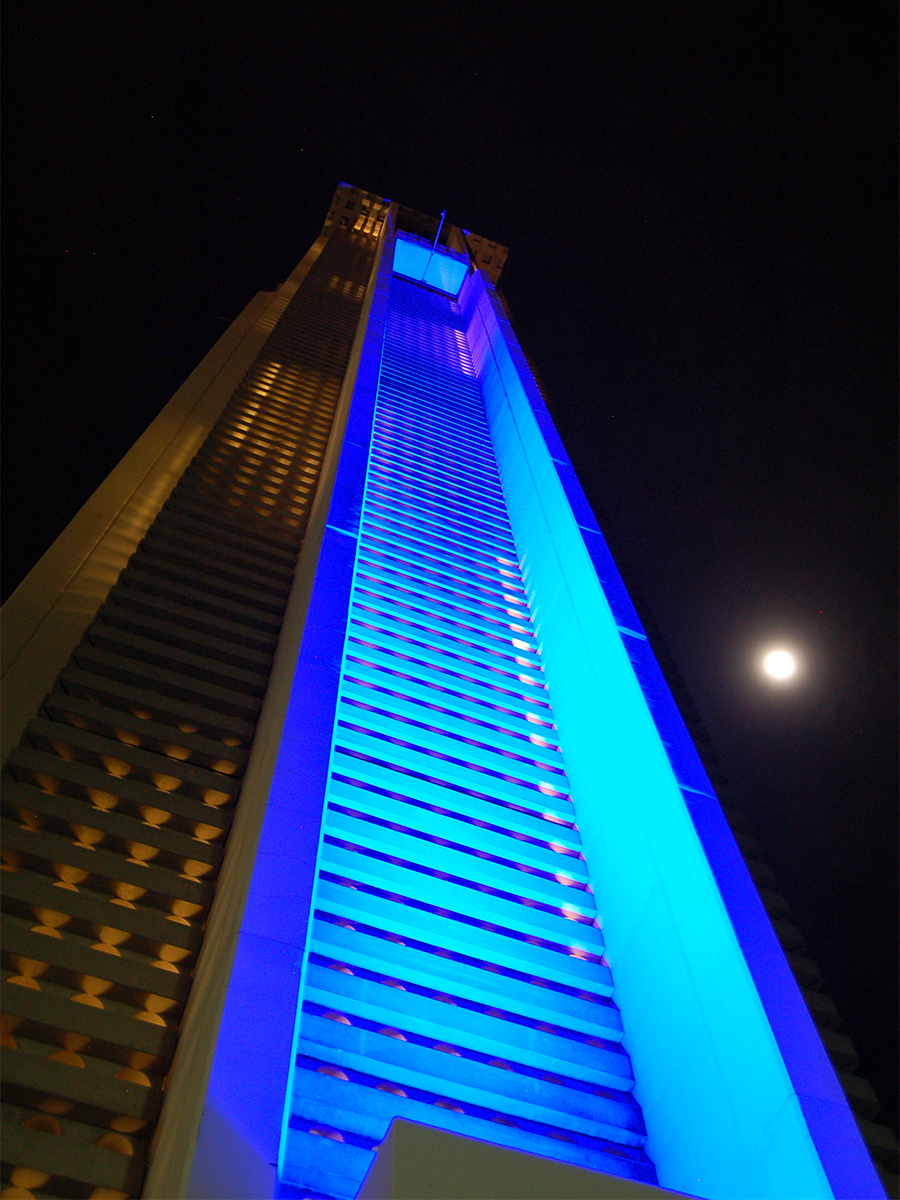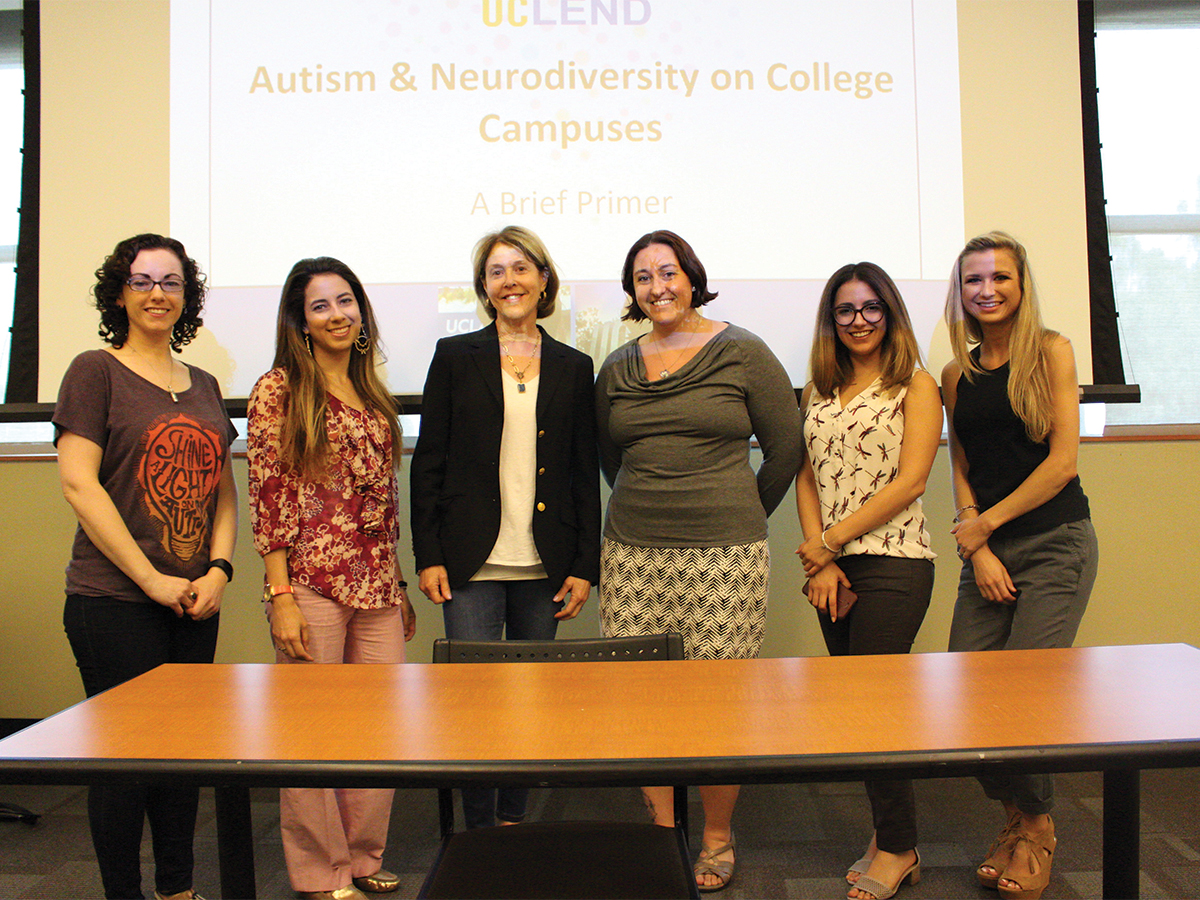
From 11:30 a.m.-12:30 p.m. on Thursday, April 27, a presentation on autism spectrum disorder and neurodiversity on college campuses was held in HUB 379. Hosted by the UCR Graduate School of Education’s Support, Education, Advocacy, Resources, Community and Hope (SEARCH) Center — a program devoted to researching autism and assisting families with children on the spectrum — the talk covered general information about autism spectrum disorder, support for students with autism and SEARCH’s recent projects.
The presentation, which was attended by approximately 40 students and other members of the UCR community, was led by SEARCH Director and Distinguished Professor of Education Jan Blacher, alongside Yasamine Bolourian, a SEARCH researcher and doctoral student in UCR’s Special Education Program. Blacher opened by pointing out the blue glow that the Bell Tower had taken on during the evening. The color, she says, indicates the campus’ support for the autism community during Autism Awareness Month.
Blacher then explained that one of SEARCH’s goals is to help reframe discussions on autism. “Rather than focus on autism as a deficit or a disability, we want to talk about autism as a difference … (or) neurological variation,” she said. Bolourian added that autism — a highly variable, “multiply determined” spectrum disorder broadly characterized by social communication difficulties and restrictive or repetitive activities, interests and speech patterns — is often referred to as an “invisible disability.” For people on the spectrum, she explained, “People (often) don’t understand that there’s actually something you need help with.”
Promoting that kind of understanding is another mission of SEARCH, Bolourian said. Approximately 0.7 percent to 1.9 percent of college students are situated somewhere on the spectrum, she reported, but a significant number of them “end up not graduating or not succeeding” to the extent that they should. Part of the problem, she explained, is due to the “service cliff” experienced by autistic students who have to leave behind their pre-college assistance programs. Those undergraduates on the spectrum who do depend upon or prefer to take advantage of such services require “personalized support” tailored to their specific needs, she said, but such support can be difficult to come by on most college campuses.
Providing services for students with autism would require more than administrative adjustments, Blacher added. At UCR, she said, “We feel like we need to teach (faculty) more than anyone on this campus” about how to help facilitate the success of students on the spectrum. She suggested that professors work with administrators and students to help provide accommodations like alternative assignment formats and peer mentors to aid students in “navigating social situations” with which they might not feel comfortable, such as working with an unfamiliar lab partner. Bolourian concurred, remarking that those wishing to assist students on the spectrum should maintain a “strength-based focus” that plays to each student’s particular assets and inclinations. Blacher added that, since UCR operates like a “small campus,” the school could serve as a fertile environment for pilot programs, which are generally more difficult to implement in larger institutions.
A short Q-and-A followed, during which Assistant Professor of Special Education Katherine Stavropoulos announced that the SEARCH Center would soon be offering undergraduate research opportunities. “We need as many interested and motivated people as we can get,” she said.
After the talk ended, the Highlander asked Blacher about what she hopes reframing autism in terms of neurodiversity might accomplish at UCR. “There’s so much neurodiversity on campus,” she said, “And we wanted to heighten awareness in hopes that it’ll make everybody more accepting of everybody else, not just those (affected by) our passion: Autism.”









